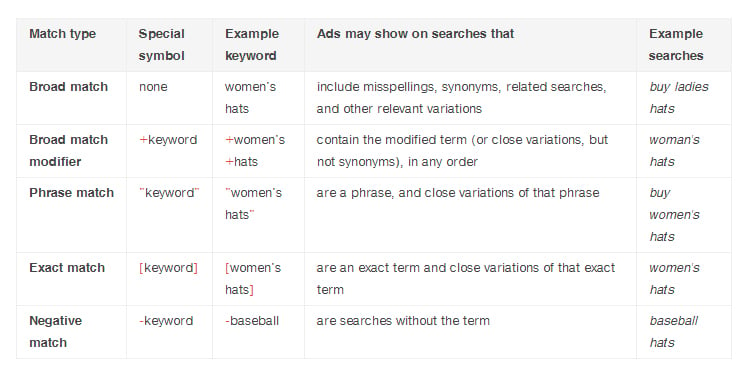Featured News - Current News - Archived News - News Categories
Are You Making These Common Google AdWords Mistakes?
by systemMany business owners know that using Google AdWords is an excellent way to drive traffic and build ROI for their websites. However, a poorly managed campaign can easily cost you more than it brings in. It all comes down to how much you know about AdWords and how efficiently you manage your campaigns. Below are some common mistakes to avoid in order to build a successful AdWords campaign.
Not Grouping Keywords Correctly
Not using ad groups is one of the biggest mistakes people make. Instead of segmenting their ads into groups based around similar types of keywords, they place all of their keywords into one ad group and show everyone the same ad.
The problem with this approach is that the ad being shown doesn't necessarily match the keyword being searched (a big no-no). Why? The closer the ad copy matches the keyword, the more likely people are to click on the ad (and eventually make a conversion).

Not Using the Right Keyword Matches
AdWords allows you to add keywords to a campaign in one of the three ways (see chart):
- A broad match keyword means that your ads will show if the keywords are used in the search, regardless of the order.
- A phrase match keyword means the keyword phrase needs to show up in the search as a complete phrase in the order you enter it.
- An exact match keyword works just like it sounds. The term being searched needs to exactly match the keyword that you entered in AdWords.
Selecting the correct keyword match will have a significant impact on your ads. A broad match generally delivers many less precise impressions, while phrase and exact matches often provide a higher conversion rate, with fewer impressions. Align your keyword matches with your marketing goals for more successful campaigns.
Not Using Negative Keywords
Another common mistake is not utilizing negative keywords. AdWords allows you to use negative keywords as a way to exclude keywords that are not a good match for your product.
For example, if you homemade pet treats but not cat treats, then you won't want your ads to show up on searches for "cat treats" but do want them to show up on searches for "pet treats." Thus, you can add "cat" as a negative keyword, and your ads won't be shown for any searches that include the word "cat."
Not Testing Your Ads
Always test your ad copy, no matter how clever you think it is. Try different headline, copy, and call-to-action combinations to determine which work best. This is often referred to as A/B testing.
Not Bidding on Your Own Brand
Many people make the mistake of not bidding on their own brand. They assume that since they already rank for their own brand, they don't need to advertise for it. However, if you aren't advertising for your brand, other companies might. They'll use your brand name for an ad group and target your visitors. While you many rank first for the organic term, your competitor may be advertising directly above that result.
Not Knowing your Cost Per Conversion (CPC)
Have you ever calculated the Lifetime Value for your customers? If not, there's no way to know how much you can spend on AdWords per acquisition (conversion). Let's say your LTV is $100. This means that you'll earn $100 on average over the lifetime of doing business with your customers. If you're paying $10 per acquisition, then you're doing well, because you're making more per customer than you're spending. But if you're LTV is $100 and you're spending $110 per acquisition, eventually you'll go out of business.
Not Knowing Your Competition
Another mistake is failure to complete competitor research. You need to know who you're competing against, what keywords they're using, and what their landing pages look like. Take some notes and determine what you can improve on, and where you have them beat.
Not Directing Visitors to the Appropriate Page
Possibly, the biggest mistake you can make with AdWords is directing all traffic to your homepage. No matter how great your homepage looks, you don't want to direct people there, especially on e-commerce sites where you have category and product pages. It's better to create specific landing pages or a product or category page where people will see a direct match to the ad they clicked.
We hope that these tips will help you to optimize your campaigns, however if you prefer to have your campaigns managed by a team of web professionals, we can do that to. To learn more, contact an Account Manager at 360psg.com.


